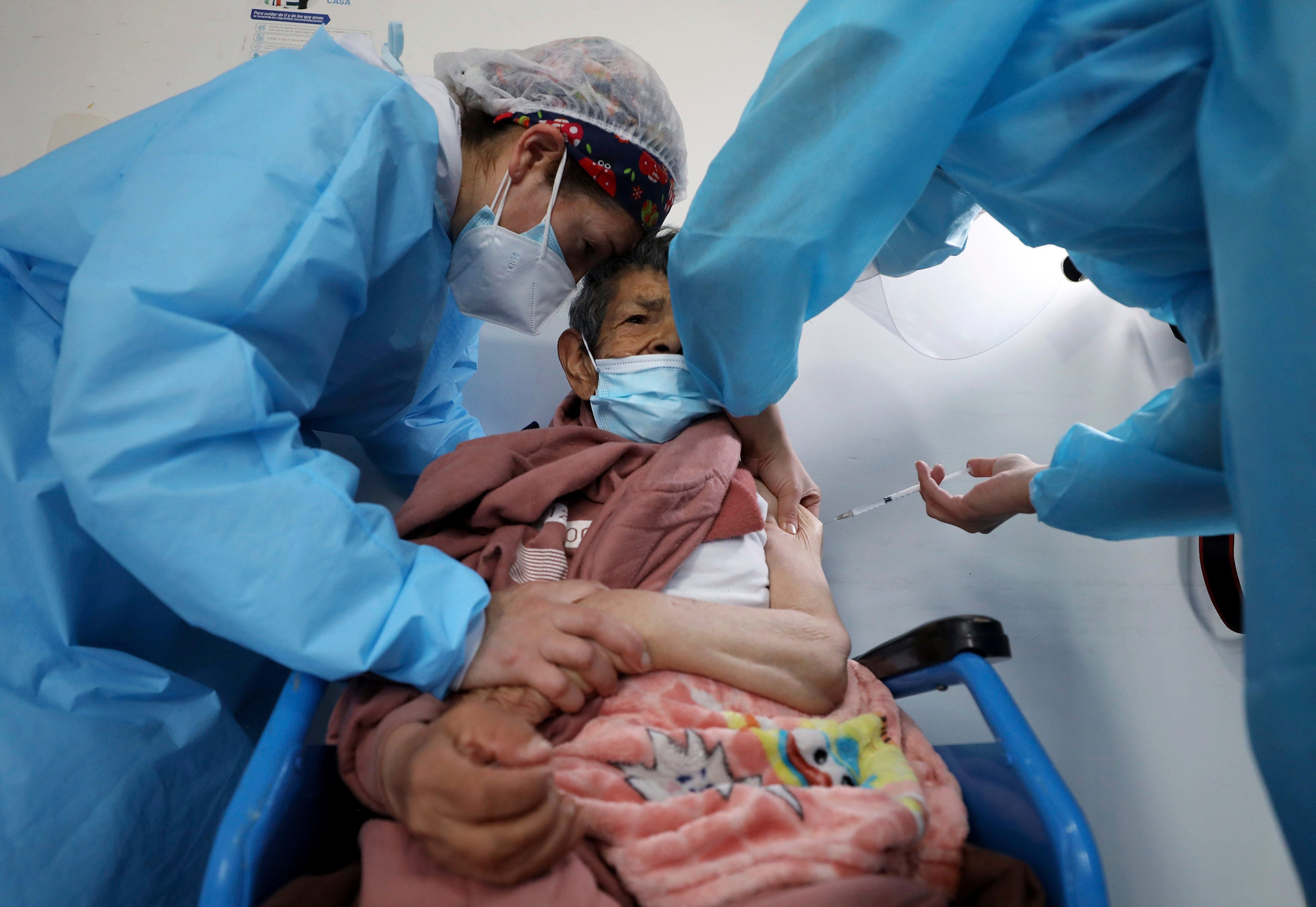Colombia 1st in Americas to get vaccines from UN program
Colombia has became the first country in the Americas to receive a shipment of coronavirus vaccines from the United Nations-backed COVAX initiative

Your support helps us to tell the story
From reproductive rights to climate change to Big Tech, The Independent is on the ground when the story is developing. Whether it's investigating the financials of Elon Musk's pro-Trump PAC or producing our latest documentary, 'The A Word', which shines a light on the American women fighting for reproductive rights, we know how important it is to parse out the facts from the messaging.
At such a critical moment in US history, we need reporters on the ground. Your donation allows us to keep sending journalists to speak to both sides of the story.
The Independent is trusted by Americans across the entire political spectrum. And unlike many other quality news outlets, we choose not to lock Americans out of our reporting and analysis with paywalls. We believe quality journalism should be available to everyone, paid for by those who can afford it.
Your support makes all the difference.Colombia on Monday became the first country in the Americas to receive a shipment of coronavirus vaccines from the United Nations-backed COVAX initiative, a program meant to ensure that the world’s most vulnerable people are inoculated but that has so far struggled to assist nations around the globe.
The arrival of 117,000 doses of the Pfizer/BioNTech vaccine to the South American country’s capital, Bogota, came a few days after the anniversary of the first case of COVID-19 found in the region.
The Pan American Health Organization said it expects to increase vaccine access in the region through the COVAX effort each month, with plans to bring about 280 million vaccines to the Americas and the Caribbean by the end of the year.
But the initiative, formed to ensure fair access to vaccines by low- and middle-income countries, has been hampered by the severely limited global supply of doses and logistical problems. Although it aims to deliver 2 billion shots this year, it currently has legally binding agreements only for several hundred million shots.
The organization said in a news release Monday that 36 countries in the region will receive vaccines through the initiative. Of those, 26 will do so through their own funds while 10 will receive the vaccines for free.
“The arrival means that more health workers and high-risk populations can begin to be vaccinated,” World Health Organization Director-General Tedros Adhanom Ghebreyesus said in a statement. “The COVID-19 pandemic can only end if vaccination occurs in an equitable way, and I am truly delighted to see vaccine doses in South America and other regions begin to be rolled out this week through COVAX.”
COVAX is only planning to provide enough vaccine for 20% to 30% of the people in poorer countries — a figure that will still leave those nations vulnerable to coronavirus outbreaks. Experts estimate that at least 70% of a population needs to be protected against COVID-19 to prevent future epidemics.
Colombia, the third largest country in Latin America by population, had already began COVID-19 inoculations, receiving its first shipment of vaccines Feb. 15. The government has said it aims to vaccinate 35 million people this year, including hundreds of thousands of Venezuelan migrants and refugees who are currently living in the country.